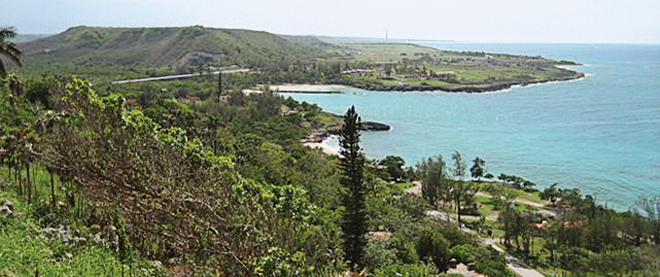Why Cuba is embracing golf
Two Canadian developers are helping Cuba use golf to boost its ailing economy
Marcovitch PR
Share

In a famous picture, Fidel Castro and Che Guevara are playing a round of golf. Guevara, in military fatigues, is studiously preparing a putt, and Castro stands aside, scrutinizing his position. They both look serious, but the context is hotly contested among historians—were they practising for an upcoming meeting with U.S. president Dwight D. Eisenhower? Or were they actually taunting him?
Cuba experts tend to agree it was a taunt. In post-revolutionary Cuba, golf was a sport for the rich, the bourgeois. And for 50-odd years, it all but disappeared from the island. (There’s currently only one 18-hole course.) But now Cuban authorities have given preliminary approval to develop four luxury golf resorts. Two of those contracts have been handed to Canadian developers.
Of the four, Ottawa-based Standing Feather International is the closest to breaking ground. Their joint venture with a division of the Cuban tourism ministry has been approved, and they’re waiting for a final sign-off from Havana to begin building. Plans for the Loma Linda Golf Estates, in the eastern Holguin region, cover 520 acres and include two golf courses, a five-star hotel, and 1,200 townhouse-style condos.
Standing Feather, which represents First Nations in Quebec and Ontario and which already had business ties in Cuba, was first asked by Cuban officials to consider a golf development in 2002. “They said the all-inclusive, sun-and-sand model was getting a bit tired, and they wanted to keep it rising,” says Standing Feather managing director Chris Nicolas. “This type of value-added tourism offers more variety and certainly caters to a higher level of tourist. It’s a completely different model for Cuba.”
The company expects the deal to be finalized before the end of the year. After incorporating the joint venture, it will set up offices in Cuba, form a board of directors and begin the two-year building process. Once the resort is fully completed, the total investment will top $530 million.
Montreal-based 360 VOX is also planning a golf resort in Jibacoa, near Havana. It will include a marina and two 18-hole courses, along with a nine-hole training course. The company is also hoping for a 2012 start date. At a conference in Europe this spring, Cuba’s tourism minister, Manuel Marrero, said the government has plans to eventually build up to 16 courses.
Nicolas admits to being surprised when he first heard about Cuba’s golf ambitions. “I told them it was a waste of good farmland,” he says. Which is exactly how Cuba treated this type of development after Castro took power—golf courses in the Havana region were promptly turned into schools and hospitals. But today, outside investment is critical, Nicolas adds. “Cuba’s economy is razor-thin right now, and they could not have come up with something that’s going to give them as much capital as quickly as the sale of real estate.”
John Kirk, a Cuba expert at Dalhousie University, has noted a “massive shift” in Cuban policy over the five years since Raul Castro took over from his brother. “The golf course is part of a larger strategy to make the Cuban socialist system more efficient,” he says. “It’s retaining the socialist revolutionary basis, but to make it more productive for the state there need to be significant compromises.”
These compromises include opening the doors to foreign ownership, which is bound to take off now that Cuba has announced its citizens can buy and sell their own homes and vehicles. Foreign ownership of vacation rentals (which Standing Feather and 360 VOX plan to offer) is expected to boost the nearly bankrupt country’s critical tourism industry.
Completing the resorts won’t be easy. The U.S. trade embargo means locating suppliers of high-quality goods has been difficult. Navigating the negotiation process was itself a challenge. “Think about the nuances of the contracts themselves,” says Standing Feather director Stephen Reynolds. “Can you imagine negotiating, for days on end, the capitalist components to a socialist legal system? It’s fascinating.” And, like a good golf swing, a lot harder to execute than it might appear.